What a crazy two months! I've been traveling every other week for the past eight weeks. I went to Orlando, Las Vegas, Boston, and Alabama! Somehow I managed to keep working on my first draft of Redemption, but I've slacked a little on blogging. Sorry! As promised, this post will be about editing and rewriting. I think this picture sums things up on that front:
But in all seriousness, after your done with your first draft, pop open a bottle of champagne (or your poison of choice) and celebrate! Then take at least a few days off before you dive into editing. After my first draft of Renegades, I didn't pick it back up for six weeks. I wouldn't recommend waiting that long. It was hard to get back into the swing of things after taking so much time off. But taking time away is important so you can look at your work with fresh eyes to catch mistakes.
After your few days or weeks off, read through the entire manuscript without stopping to fix every typo. Look at the bigger things like pacing, scene order, and plot holes. I printed out the first draft so I was able to use post-it flags to mark pages where I wanted to make changes. Sometimes I would write out a bigger post-it explaining what I wanted to do. For example, I spent several pages building up to a climatic event, only to rush through the event in a couple paragraphs when it finally happened. I made a note to myself to go back and elaborate. Also, since a lot of what I wrote in the first draft wasn't exactly as I had outlined, multiple times I had to go back and add a scene to make a later one make sense. After I read through the manuscript, I went back and flagged where I would add scenes and what they would say.
Once you know your plot, scenes, characters, and pacing are solid, you can start going through the draft slowly to change the little things.
After your few days or weeks off, read through the entire manuscript without stopping to fix every typo. Look at the bigger things like pacing, scene order, and plot holes. I printed out the first draft so I was able to use post-it flags to mark pages where I wanted to make changes. Sometimes I would write out a bigger post-it explaining what I wanted to do. For example, I spent several pages building up to a climatic event, only to rush through the event in a couple paragraphs when it finally happened. I made a note to myself to go back and elaborate. Also, since a lot of what I wrote in the first draft wasn't exactly as I had outlined, multiple times I had to go back and add a scene to make a later one make sense. After I read through the manuscript, I went back and flagged where I would add scenes and what they would say.
Once you know your plot, scenes, characters, and pacing are solid, you can start going through the draft slowly to change the little things.
I would fix obvious grammar, spelling, and word choice mistakes as I went. I read through the manuscript several times, and each time I would have a different focus. First, I read through focusing on dialogue. It's important to make sure each of your characters has a distinct voice. If you remove the speech tags (he said, she asked, etc.), you should be able to tell who is talking. If you find your characters sounding the same, I would go back and do some more character development. Next, I read through and focused on descriptions. Whenever your characters are in a new place, orient your reader by describing how it looks, feels, and smells. Make sure it's done naturally by how the character interacts with the new setting. If the lights are off, your character might be feeling his away around or using a scent to guide him. It wouldn't make sense to describe how the room looks with the light on.
For me, the most important part of this process--and the most annoying--is rewriting. If you're anything like me, during your first draft, there were scenes you thought were absolute crap but you kept pushing through and writing to keep the story moving and to finish the draft. Those scenes are the ones that need rewriting. It's a necessary evil, but it has to be done.
Lastly, look for inconsistencies. Halfway through my first draft of Renegades, I switched the names of two planets. It even had me confused. I also wrote about the distance between two places. The first time I mentioned it, the distance was 5 feet. The second time, it was 10 feet. Don't worry if you don't catch all those little mistakes now. Your beta readers and editor(s) should help you with that.
Although you'll feel like you made a lot of progress, you'll have to edit again later in the process! But first, you need some feedback. Before you rush out and hire an editor, I would suggest getting a handful of beta readers. Don't know what beta readers are? Stay tuned for my next blog post! Happy editing!
For me, the most important part of this process--and the most annoying--is rewriting. If you're anything like me, during your first draft, there were scenes you thought were absolute crap but you kept pushing through and writing to keep the story moving and to finish the draft. Those scenes are the ones that need rewriting. It's a necessary evil, but it has to be done.
Lastly, look for inconsistencies. Halfway through my first draft of Renegades, I switched the names of two planets. It even had me confused. I also wrote about the distance between two places. The first time I mentioned it, the distance was 5 feet. The second time, it was 10 feet. Don't worry if you don't catch all those little mistakes now. Your beta readers and editor(s) should help you with that.
Although you'll feel like you made a lot of progress, you'll have to edit again later in the process! But first, you need some feedback. Before you rush out and hire an editor, I would suggest getting a handful of beta readers. Don't know what beta readers are? Stay tuned for my next blog post! Happy editing!
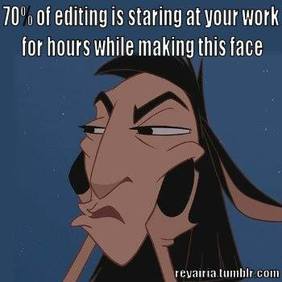
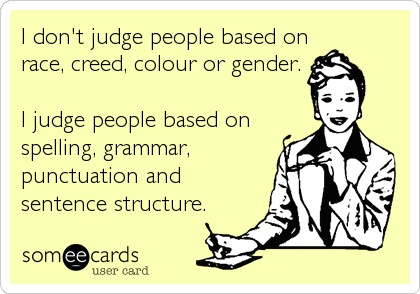
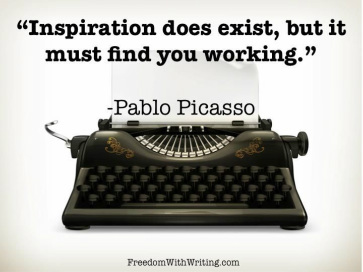
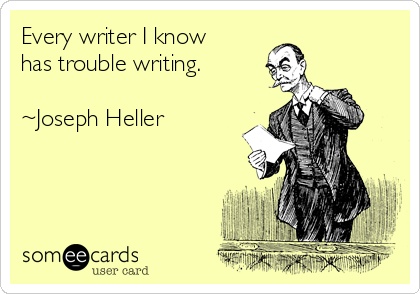
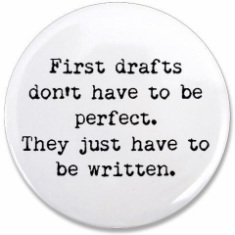
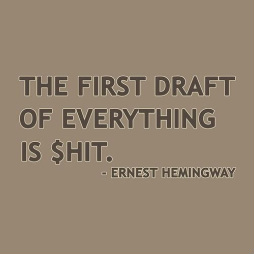
 RSS Feed
RSS Feed
